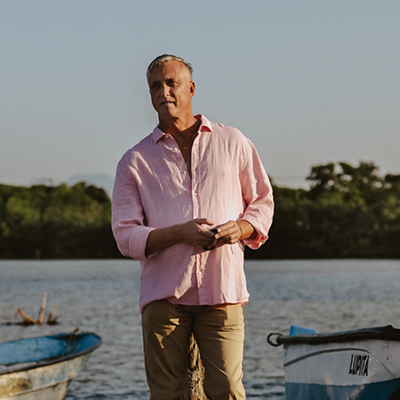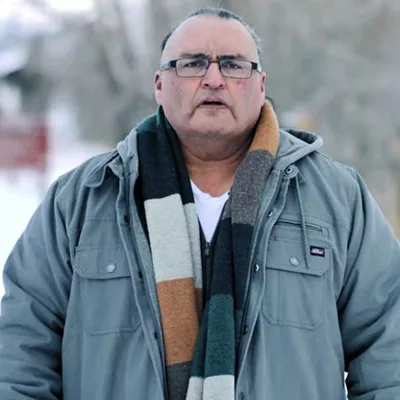French-born guitarist Marc Antoine has helped redefine the genre of Spanish guitar.
Blending a background in jazz, classical, Afro and pop music with a unique flair, Antoine spent the 1990s playing with the likes of recording artists including Sting, Celine Dion, Rod Stewart and Cher.
He has composed and performed major movie soundtracks, working on Get Shorty, The Fan and Patch Adams, among others, and is familiar with the No. 1 spot on the Billboard R&B and contemporary-jazz charts.
Antoine will be appearing in Tucson at the Sheraton Tucson Hotel and Suites, along with Phoenix-based guitar virtuosos Thano and Demitri Sahnas.
Antoine said that, for him, music is a frame of mind that changes depending on the genre.
"If you play jazz, you have to be in a jazz frame of mind," Antoine said. "If you play pop, you have to be in a pop frame of mind. The same goes for classical or any other genre. The interpretation frees up a new kind of style."
Antoine's father bought him his first guitar at the age of 11. By age 13, Antoine was studying classical music at the Paris Conservatoire under the likes of famed Spanish guitarist Andrés Segovia and composer John Williams.
He said he dove headfirst into the vibrant music scene of 1970s Paris. He played jazz, rock, pop and Afro music with an ever-changing lineup of musicians.
While Antoine said he does not prefer a particular genre of music, his experience playing with artists from varying cultural backgrounds and walks of life has helped to shape him into the musician he is today.
"In Paris, there is a very strong African community I played with," he said. "The musical language, especially with the African community, is almost like voodoo: It really gets into you. There is some magic in it."
However, the experience wasn't without its awkward moments.
"I scared myself a few times realizing I was the only white guy in the band," said Antoine.
Antoine's career was jeopardized in the summer of 1981, when the family dog jumped up to greet him, causing him to fall through a glass door. The shattered glass severed nerves and tendons—cutting his left wrist to the bone. Antoine's surgeon told him it was unlikely that he would ever play guitar again.
After three years of rehabilitation, Antoine saw the surgeon and played something for him. The surgeon couldn't believe it, he said.
"I really had to develop a different technique, because some of my fingers, I can't use. But don't worry; the show will still be good," Antoine said with a laugh. "All these things—destiny—made my style of music in many ways."
In 1988, Antoine moved to London, where he worked with the Reggae Philharmonic Orchestra and was part of the London acid-jazz scene.
"The approach to music is a little different in London," said Antoine. "That's probably where I learned to write a pop song."
After London, Antoine embarked on an around-the-world journey that has landed him in music scenes from Tokyo to Los Angeles.
"I live in Madrid now, and I love being in the studio and with my family—but I am a musician, and I need to go play," said Antoine. "When you play live shows like this, it really feeds your soul."
Performing with Antoine during his Tucson appearance, Demitri and Thano Sahnas—members of well-known Phoenix act Turning Point—will infuse some of rock 'n' roll's greatest classics with their distinctly Greco-Mediterranean sound.
"During the late-'70 and early-'80s, jazz fusion was being introduced to the world, and we fell in love with it," Thano Sahnas said.
On their most recent album, Under the Covers Volume II, the Sahnas have adopted some of the more sophisticated music of the classic-rock era to the Spanish guitar—including "Don't Fear the Reaper" and "We Are the Champions."
Thano Sahnas promised that Tucson audience can expect an incredible night of Spanish guitar.
"Marc Antoine's music is some of the most melodic music in this genre," he said. "Antoine closes his eyes and plays from his heart."
At the end of the night, Antoine and the Sahnas brothers will close out the concert with a jam session.
"No one is going to know what to expect," said Thano Sahnas. "At the end of the piece, we are going to look at each other and say we wish we were recording it."






